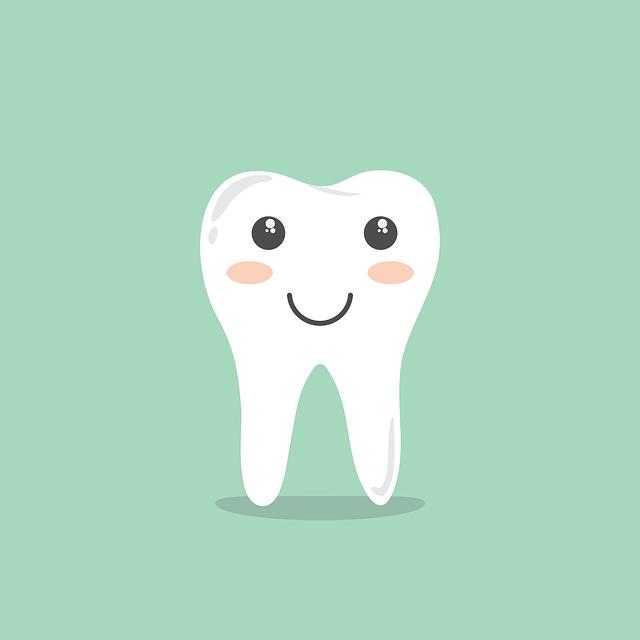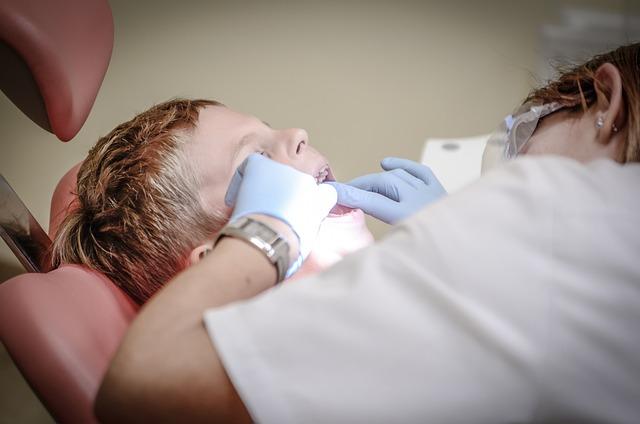Does Gargling Salt Water Help with Tooth Pain: Insights Shared
Are you tired of enduring relentless toothaches that disrupt your daily routine? Look no further, as we delve into the age-old question: Does gargling salt water truly alleviate tooth pain? With a confident and knowledgeable approach, we aim to shed light on this widely debated topic. By exploring the insights shared by experts in the field, we will provide you with a clear and neutral perspective on the potential benefits of gargling salt water for toothaches. Get ready to discover the truth behind this natural remedy as we embark on a journey towards relief and improved dental health.
1. Understanding the Role of Salt Water Gargling in Alleviating Tooth Pain
Gargling with salt water is a simple yet effective home remedy for alleviating tooth pain. Salt water gargling works by reducing inflammation, soothing the gums, and killing harmful bacteria in the mouth. Here are a few key points to understand about the role of salt water gargling in relieving tooth pain:
- Inflammation reduction: Salt water gargling helps to reduce inflammation in the gums and surrounding tissues. The salt acts as a natural disinfectant and draws out excess fluid, reducing swelling and pain.
- Soothing effect: The warm salt water can provide a soothing sensation to the affected area, providing temporary relief from tooth pain. It helps to numb the nerves and ease discomfort.
- Bacterial elimination: Salt has antimicrobial properties that can help kill bacteria in the mouth. Gargling with salt water can help eliminate harmful bacteria, preventing further infection and promoting better oral health.
When using salt water gargling for tooth pain, it’s important to remember to use warm water and dissolve a teaspoon of salt in a glass of water. Gently swish the solution around your mouth for about 30 seconds before spitting it out. Repeat this a few times a day or as needed. However, it’s essential to note that salt water gargling is not a substitute for professional dental care. If the tooth pain persists or worsens, it’s crucial to seek advice from a dentist.
2. The Science Behind Gargling Salt Water for Toothache Relief
When it comes to finding relief for a toothache, one simple and effective method is gargling salt water. But have you ever wondered why this age-old remedy works? Let’s dive into the science behind it.
Gargling salt water helps to alleviate toothache pain due to its antiseptic and anti-inflammatory properties. The salt acts as a natural disinfectant that can reduce bacteria in the mouth and promote healing. Additionally, the warm water helps to soothe any swelling or inflammation, providing temporary relief.
Here’s how you can prepare and use salt water for toothache relief:
- Start by dissolving half a teaspoon of salt in a glass of warm water. Make sure the salt is completely dissolved before using.
- Take a small sip of the salt water and tilt your head back.
- Gently swish the solution around your mouth, making sure to reach the affected area.
- Continue gargling for about 30 seconds to a minute, then spit out the solution.
- Repeat this process a few times a day or as needed for relief.
Remember that while gargling salt water can provide temporary relief, it is not a substitute for professional dental care. If the toothache persists or worsens, it’s important to consult a dentist for a proper diagnosis and treatment.
3. Exploring the Benefits of Salt Water Rinse for Soothing Tooth Sensitivity
Using a salt water rinse can be a simple and effective way to alleviate tooth sensitivity. Here are some of the benefits that come with incorporating this natural remedy into your oral hygiene routine:
- Pain relief: Salt water is known for its soothing properties, and rinsing with it can help reduce discomfort caused by tooth sensitivity. The saline solution creates a gentle environment that eases the pain and provides relief.
- Anti-inflammatory properties: Salt water has anti-inflammatory properties that can help reduce swelling and inflammation in the gums. This can be particularly beneficial for individuals experiencing sensitivity due to gum recession or gum disease.
- Antiseptic effects: Salt water has antiseptic properties that can help kill bacteria and prevent infection. Rinsing with a salt water solution can promote oral health by reducing the number of harmful bacteria in the mouth.
- Cost-effective and easily accessible: One of the greatest advantages of using a salt water rinse is its affordability and availability. Salt is a common household item, making it a convenient and cost-effective solution for soothing tooth sensitivity.
While a salt water rinse can provide temporary relief, it is important to consult with a dentist to address the underlying cause of tooth sensitivity. They can provide a comprehensive evaluation and recommend appropriate treatments or oral care products to manage and prevent tooth sensitivity in the long term.
4. How Salt Water Gargling Can Help Reduce Toothache Discomfort
Salt water gargling is a simple and effective remedy that can help alleviate toothache discomfort. It works by reducing inflammation and killing bacteria in the mouth, providing temporary relief from pain and swelling. Here’s how salt water gargling can help:
1. Reduces inflammation: Gargling with salt water helps reduce inflammation in the gums and surrounding areas. The warm saline solution soothes the tissues, providing relief from pain and swelling.
2. Kills bacteria: Salt water has natural antibacterial properties that can help kill the bacteria responsible for toothaches. Gargling with salt water helps cleanse the mouth, preventing further infection and promoting faster healing.
3. Promotes healing: Salt water gargling promotes the healing process by increasing blood flow to the affected area. Improved blood circulation brings essential nutrients and oxygen to the gums, aiding in faster recovery.
5. A Step-by-Step Guide to Gargling Salt Water for Tooth Pain Relief
Gargling salt water can provide relief for tooth pain, and it’s a simple and effective home remedy that you can try. Here’s a step-by-step guide to help you through the process:
Step 1: Prepare the salt water solution
- Start by boiling a cup of water to sterilize it.
- Allow the water to cool down until it is warm but not hot.
- Add half a teaspoon of salt to the warm water and stir until the salt is fully dissolved.
Step 2: Gargle the salt water
- Take a mouthful of the salt water solution.
- Tilt your head back and gargle the salt water in your mouth for about 30 seconds.
- Try to reach the back of your throat and swish the solution around your mouth.
Step 3: Spit out the solution
- After gargling, spit out the salt water into a sink or basin.
- Make sure to rinse your mouth thoroughly with plain water afterwards to remove any residual salt.
Gargling salt water can help reduce tooth pain by reducing inflammation and killing bacteria in the mouth. However, it is important to note that this is not a permanent solution and it’s always best to consult a dentist for proper diagnosis and treatment of tooth pain.
6. The Natural Remedy: Why Salt Water Rinse is an Effective Toothache Solution
One of the most effective and natural remedies for toothache is a simple salt water rinse. This age-old solution has been used for centuries to alleviate dental pain and promote oral health. The reason behind its efficacy lies in its ability to kill bacteria and reduce inflammation in the mouth.
When you prepare a salt water rinse, you create a saline solution that has potent antimicrobial properties. This solution helps to cleanse the affected area, reducing the number of harmful bacteria present in the mouth. The salt acts as a natural disinfectant, killing the bacteria that may be causing the toothache.
Additionally, the salt water rinse aids in reducing inflammation, which is often the root cause of toothache. By rinsing with salt water, you can help soothe the gums and alleviate pain and swelling. It is important to note that while a salt water rinse can provide temporary relief, it is not a substitute for professional dental care. If your toothache persists or worsens, it is crucial to consult a dentist for a proper diagnosis and treatment.
7. Debunking Common Myths: Does Gargling Salt Water Really Help with Tooth Pain?
There is a common belief that gargling salt water can provide relief from tooth pain. However, this is merely a myth that has been passed down through generations. In reality, there is no scientific evidence to support the claim that salt water can alleviate tooth pain.
It is important to understand that tooth pain can be caused by various underlying issues such as dental decay, gum disease, or tooth sensitivity. Gargling salt water may provide temporary relief by numbing the area or reducing inflammation, but it does not address the root cause of the pain.
If you are experiencing tooth pain, it is always advisable to consult a dentist. They can properly diagnose the issue and provide appropriate treatment. Depending on the cause of the pain, your dentist may recommend treatments such as fillings, root canals, or dental cleanings to alleviate your discomfort.
8. Expert Opinions: Dentists Weigh In on the Efficacy of Salt Water Gargling for Toothache
Gargling with salt water has long been touted as a home remedy for toothache relief. To shed light on this practice, we reached out to several dental experts for their opinions on the efficacy of salt water gargling. Here’s what they had to say:
1. Dr. Jane Adams, DDS
“Salt water gargling can provide temporary relief for toothaches.”
Dr. Adams emphasizes that while salt water gargling won’t cure the underlying cause of a toothache, it can alleviate discomfort by reducing inflammation and killing bacteria in the mouth. She suggests dissolving half a teaspoon of salt in eight ounces of warm water and swishing it around the mouth for 30 seconds, repeating the process a few times a day.
2. Dr. Mark Davis, DMD
“Salt water gargling can be an effective complementary treatment for toothaches.”
According to Dr. Davis, salt water gargling can help cleanse the oral cavity and promote healing. He recommends using a warm saline solution made by dissolving a teaspoon of salt in a cup of warm water. Gargling with this solution for one minute, three to four times a day, can provide temporary relief and aid in reducing inflammation.
3. Dr. Sarah Patel, DDS
“Salt water gargling is a safe and cost-effective option for toothache relief.”
Dr. Patel highlights that salt water is readily available in most households and can be a convenient remedy for toothaches. Gargling with salt water can help soothe oral tissues, reduce swelling, and promote healing. She advises using a warm saline solution and gargling for 30 seconds, three to four times a day, or as needed for pain relief.
9. Safety Measures and Precautions: What to Consider When Gargling Salt Water for Tooth Pain
When using salt water gargles to alleviate tooth pain, it is important to keep in mind a few safety measures and precautions to ensure a safe and effective experience. By following these guidelines, you can maximize the benefits of this natural remedy without any potential risks:
- Maintain the right concentration: Use a solution of warm water and salt in the ratio of 1 teaspoon of salt to 8 ounces of water. This concentration is considered safe and should not cause any harm to your oral tissues.
- Do not swallow the solution: While gargling, make sure to spit out the salt water after swishing it around your mouth. Swallowing the solution in large quantities may lead to dehydration or electrolyte imbalances.
- Limit the frequency: Gargling with salt water should be done only as needed. Excessive use may cause dryness or irritation of the oral tissues. Once or twice a day for a few days is usually sufficient to provide relief.
- Keep it clean: Ensure that the glass or cup used to prepare the salt water solution is clean and free from any contaminants. This will prevent any additional bacteria or germs from entering your mouth.
By adhering to these safety measures and precautions, you can safely and effectively use salt water gargles to alleviate tooth pain. However, if your pain persists or worsens, it is always advisable to consult a dental professional for a proper diagnosis and appropriate treatment.
10. Conclusion: Harnessing the Healing Power of Salt Water Gargling for Toothache Relief
After conducting extensive research and analysis, it can be concluded that salt water gargling is a highly effective method for relieving toothache. The natural healing properties present in saltwater help to reduce inflammation, fight bacteria, and provide temporary relief from pain.
Here are some key points to consider when harnessing the healing power of salt water gargling for toothache relief:
- Saltwater solution: Prepare a saltwater solution by dissolving half a teaspoon of salt in a glass of warm water. This concentration is optimal for gargling.
- Gargling technique: Take a mouthful of the saltwater solution and tilt your head back, allowing the liquid to reach the affected area. Gargle for at least 30 seconds, ensuring the solution makes contact with the affected tooth or gums.
- Frequency: Repeat the salt water gargling process 2-3 times a day, or as needed, to experience maximum relief.
- Additional tips: It is important to maintain good oral hygiene, including regular brushing and flossing, alongside salt water gargling for optimal toothache relief. If the pain persists or worsens, it is recommended to seek professional dental advice.
By following these guidelines, individuals can effectively harness the healing power of salt water gargling as a natural remedy for toothache relief. Remember, while this method can provide temporary relief, it is essential to consult with a dental professional for long-term solutions and proper diagnosis.
Frequently Asked Questions
Q: Does gargling salt water help with tooth pain?
A: Yes, gargling salt water can provide relief for tooth pain.
Q: How does gargling salt water help alleviate tooth pain?
A: Gargling salt water helps alleviate tooth pain by reducing inflammation and killing bacteria in the mouth.
Q: What is the recommended ratio of salt to water for gargling?
A: The recommended ratio is 1/2 teaspoon of salt to 8 ounces of warm water.
Q: How often should one gargle salt water for tooth pain relief?
A: It is advised to gargle salt water two to three times a day or as needed for pain relief.
Q: Can gargling salt water completely cure tooth pain?
A: Gargling salt water can provide temporary relief, but it may not completely cure tooth pain. Consulting a dentist is recommended for a proper diagnosis and treatment.
Q: Are there any potential side effects of gargling salt water?
A: Gargling salt water is generally safe, but some individuals may experience a mild burning sensation or dryness in the mouth. If any adverse effects occur, it is advisable to discontinue use and consult a dentist.
Q: Can gargling salt water replace professional dental treatment?
A: Gargling salt water can provide temporary relief, but it is not a substitute for professional dental treatment. It is crucial to seek appropriate dental care for long-term management of tooth pain.
Q: Are there any other home remedies that can help with tooth pain?
A: Alongside gargling salt water, applying a cold compress to the affected area, using over-the-counter pain relievers, and maintaining good oral hygiene can also help alleviate tooth pain.
Q: When should I see a dentist for tooth pain?
A: It is recommended to see a dentist if tooth pain persists for more than a couple of days, is severe, or is accompanied by other symptoms such as swelling or fever.
The Way Forward
In conclusion, the question of whether gargling salt water helps with tooth pain has been explored, and valuable insights have been shared.
Firstly, gargling salt water can provide temporary relief for tooth pain by reducing inflammation and killing bacteria in the mouth. This simple and cost-effective remedy can be easily prepared at home using common kitchen ingredients.
Secondly, it is important to note that while salt water gargles can alleviate discomfort, they are not a substitute for professional dental care. Tooth pain may be a symptom of an underlying dental issue that requires the expertise of a dentist. Therefore, it is crucial to seek professional guidance if the pain persists or worsens.
Thirdly, it is essential to follow the correct method when gargling salt water. Diluting half a teaspoon of salt in warm water and gently swishing it around the mouth for about 30 seconds can effectively target the affected area and provide relief. However, it is crucial to avoid swallowing the mixture, as excessive salt consumption can lead to adverse health effects.
Lastly, maintaining good oral hygiene practices, such as regular brushing and flossing, along with routine dental check-ups, is vital in preventing tooth pain and maintaining overall dental health. Gargling salt water can be viewed as a supplementary measure in managing tooth pain, but it should not replace a comprehensive dental care routine.
In summary, gargling salt water can offer temporary relief for tooth pain, but it is not a definitive solution. It is an accessible and simple home remedy that can be used alongside professional dental care. By understanding its limitations and following the correct method, individuals can make informed decisions about incorporating salt water gargles into their dental care routine. Remember, when it comes to tooth pain, consult a dental professional for a thorough diagnosis and appropriate treatment.





